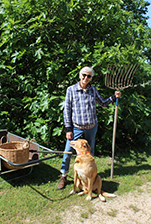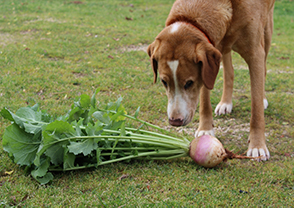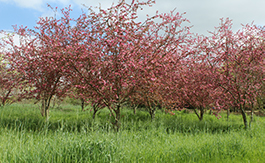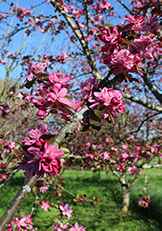Promoting Sustainability in Food Supply
 Melissa Tufts, of the Owens Library and director of CED's Circle Gallery, shares her thoughts on sustainability, Athens’ food system, and what she’s doing in
response.
Melissa Tufts, of the Owens Library and director of CED's Circle Gallery, shares her thoughts on sustainability, Athens’ food system, and what she’s doing in
response.
"This pandemic shines a bright light on the inequities in our food system and the vulnerable nature of a 'just in time' mentality for food and essential supplies. Cities, obviously, are highly dependent on agriculture, and all this got me thinking once again about how we feed ourselves here in America. Setting aside the vagaries of industrial agriculture for a moment, I turned to our own farm and how we produce food. I can’t fix the whole system, but I can try to make a difference at this moment, in my community. This effort actually goes back over 100 years in the early decades of the Progressive Era, when horticulturalists and landscape gardeners, the predecessors to landscape architecture in America, addressed the need for people to have access to nature and to be self-reliant by including orchards and kitchen gardens into their homesteads. What to do at this moment in time with the resources we have?

"We are doubling the size of our vegetable garden here at our farm (we are an organic farm, established in 1996) in Madison County, out near the Broad River, to be able to supply our county's Food Bank. The garden and fruit orchard is about 1/4 of an acre. We start most everything from seed and use organic methods with no off-farm inputs. My husband Michael and I were among the first of the market gardeners in Athens, selling on the streets downtown across from City Hall. Over the years, I cut back on our production simply because I needed a stable income and wanted to concentrate on my work at UGA. In the past we sold to a few Athens restaurants, had a CSA, and donated to the Food Bank when we could. We’ve had several CED students work out here as interns.

"Because my work at CED now takes up too much of my time and energy to do a bona fide market garden, I was slowly reducing the amount of production...until COVID-19 hit. Now we are re-energized big-time. Being engaged in my community and studying rural issues over the years, I am also struck by how hard it is for people to get good food without getting into a car. There are still plenty of rural residents who have wonderful gardens and an incredible amount of know-how, but there are also lots of people who haven't the resources or guidance. Gone are most of the small crossroads stores where one could set out on foot, a bike, a horse, or a tractor to purchase a gallon of milk and some flour, along with crickets for fishing. Now, rural areas depend on Dollar Generals, situated in areas not friendly to pedestrians.

"Our nation's food system is vulnerable in many ways. In addition to the just-in-time model, we are heavily dependent on migrant workers, who have not been welcome by everyone and are underappreciated. So, in a way, my rededication to our market garden is a local response to a national problem.
"Of course, the confidence and delight that comes from digging in the dirt, watching seedlings break ground, and begging our dogs not to dig up the turnips is a huge benefit in these stressful times. I think back on my grandparents here in Georgia who survived the devastation of the Civil War, the two World Wars, the Great Depression, and the 1918 flu epidemic (which took my grandfather's life but thankfully spared my grandmother and their three children). I am inspired--I wouldn’t be here if they hadn’t persisted, so I, too, will persist for my family and my community.

"The soil is approaching 70 degrees, and moisture content is good. The three horses have been generous in their manure donation, as have the goats and chickens. The sun is out. The winter cover crop is ready to be tilled under. Raspberries, blueberries, and blackberries are blooming and there are thousands of tiny fuzzy peaches on the peach trees. The apple blossoms are floating on the wind. Today I am motivated by that great essayist Montaigne and turn my full attention to 'planting cabbages.' In the garden there is always good work to do and hope to be unearthed."
